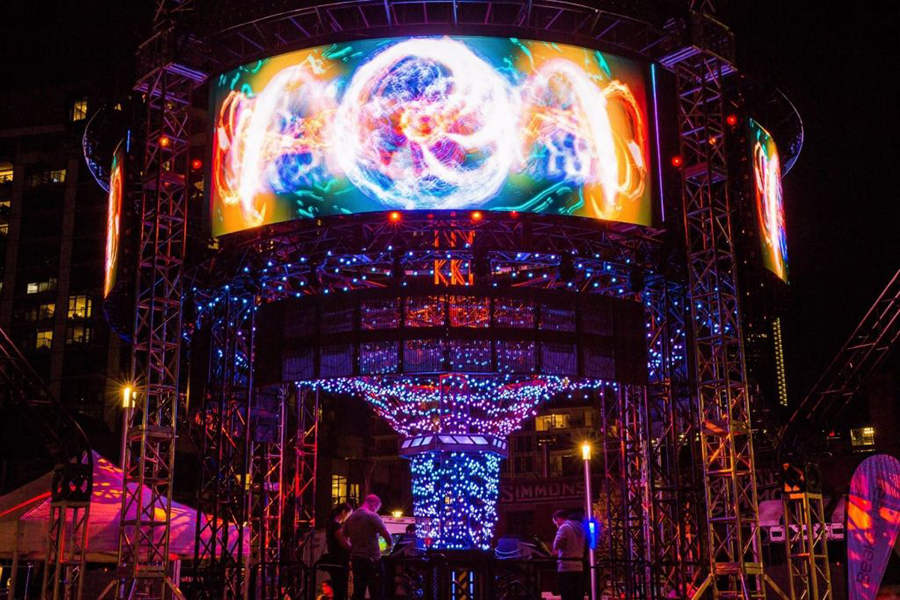GIA Board Responds to the Trump Administration Budget Proposal Cuts for FY 2020
In a letter, the board of directors of Grantmakers in the Arts requested that Congress support appropriations of $167.50 million for the National Endowment for the Arts and the National Endowment for the Humanities respectively, as well as $262 million for the Institute of Museum and Library Services, and $480 million for the Corporation for Public Broadcasting. The letter also asks to reject the elimination of these agencies as proposed by the Trump Administration’s Fiscal Year 2020 budget request. Read the letter in GIA’s Arts Funders Respond page.
From the GIA Reader
In the Winter 2019 issue of the GIA Reader, in “Building Racial Equity in Public Art Funding: A Seattle story,” Marcia Iwasaki, Elisheba Johnson, and Erika Lindsay discuss how the Seattle Office of Arts & Culture addresses racial equity in its programs and policies with the hope of achieving a racially equitable society. In this piece, they share lessons on the work they have embarked on to remove barriers and address structural racism in their public art program and grantmaking. Read the piece here.
“Arts Funding, Storytelling, and the Importance of Narrative Change” Webinar
Grantmakers in the Arts is a community of practice with a shared vision of investing in arts and culture as strategy for social change. One of the major issues we are exploring is dominant and/or mainstream narratives that continue to live on and perpetuate racialized practices and outcomes. With a system that is not broken, but rather structured intentionally to foster inequitable and unjust outcomes, the need for narrative change is more urgent now than ever.
We seek to elevate the importance of changing narratives among arts and culture funders, and we invite you to join us kick off this narrative change series.
Join us on Thursday, May 2, 2019 at 2pm ET/11am PT to hear from Vanessa Camarena-Arredondo, Beloved Community Fund program officer, Akonadi Foundation, and Rinku Sen, writer and political strategist. They will anchor the series with a discussion on the national discourse around narrative change, how artists are using storytelling to facilitate this shift, and what this means for funders. Details and registration here.
We seek to elevate the importance of changing narratives among arts and culture funders, and we invite you to join us kick off this narrative change series.
Join us on Thursday, May 2, 2019 at 2pm ET/11am PT to hear from Vanessa Camarena-Arredondo, Beloved Community Fund program officer, Akonadi Foundation, and Rinku Sen, writer and political strategist. They will anchor the series with a discussion on the national discourse around narrative change, how artists are using storytelling to facilitate this shift, and what this means for funders. Details and registration here.
“Funding in Rural Remote Communities” Webinar
As we think about the unique challenges that face various communities that are considered rural, funding practices often come packaged for a similar prototype while the term “rural” remains a descriptor for objectively remote communities and bustling cities alike. However, when we think particularly about indigenous and native communities in tandem with arts and culture funding, philanthropic practice can look very different.
Join us on Tuesday, May 21, 2019 at 2pm ET/11am PT to hear from Lindsie Bear, program director of Native Cultures Fund, Humboldt Area Foundation, and Reuben Roqueñi, director of National Artist Fellowships, Native Arts and Cultures Foundation. They will share how they have seen supporting indigenous communities, both remote and rural, and they will offer suggestions for rural and remote arts and culture philanthropic practice for communities across the nation. Details and registration here.
Join us on Tuesday, May 21, 2019 at 2pm ET/11am PT to hear from Lindsie Bear, program director of Native Cultures Fund, Humboldt Area Foundation, and Reuben Roqueñi, director of National Artist Fellowships, Native Arts and Cultures Foundation. They will share how they have seen supporting indigenous communities, both remote and rural, and they will offer suggestions for rural and remote arts and culture philanthropic practice for communities across the nation. Details and registration here.

In his most recent Nonprofit with Balls blog post, Vu Le states that the more privilege people have, the more likely they are to complain about the lack of solutions proposed. He calls it “solutions privilege,” “the privilege of expecting solutions that would align with one’s worldview and not challenge one’s privilege”…
Each year, Eastern State Penitentiary, which was built as a punishing fortress in 1829 outside Philadelphia, gets hundreds of visitors to explore its grounds. At some point, tackling the site’s history, as The New York Times reported, was not enough and addressing mass incarceration as a crisis in the United States was the answer…
Sherece Y. West-Scantlebury, president and CEO of the Winthrop Rockefeller Foundation, shares in an article published in Stanford Social Innovation Review how the foundation she leads embarked on a path to transform its endowment and achieve racial equity…
“Why not put money in the hands of artists to spark projects that would inspire public imagination?” That's the question the Barr Foundation and the New England Foundation for the Arts asked as the Creative City program began in 2015 and there was a clear interest for more arts in Boston…

